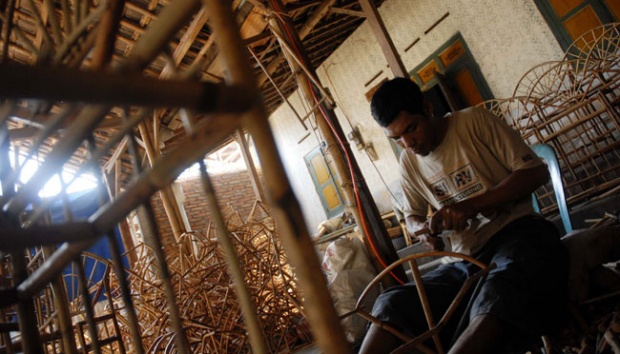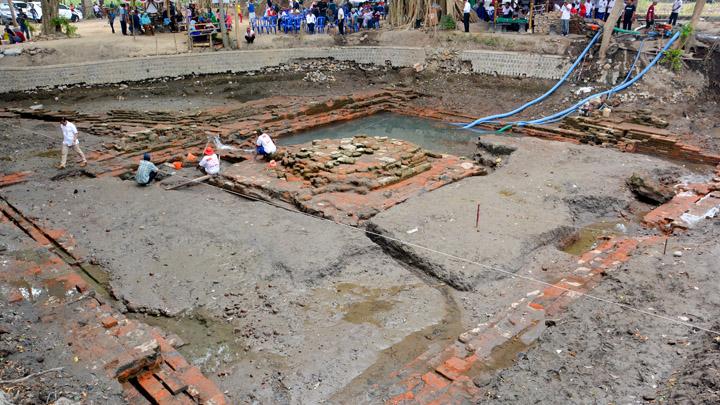
TEMPO.CO, Jakarta - Samsiah Harahap works from her home in Tanjung Morawa, North Sumatra, spending around nine hours a day making wire tongs for cooking and grilling. Samsiah, whose husband is a factory worker, has never complained about the long hours. She needs the money to support her family.
"I do this to help my husband and put our two children through school," said the 32-year-old woman. In one day, Samsiah can produce 60 utensils and earn Rp15,000. She knows her pay is low, but her fee was already raised in 2014, from Rp10,500 per day.
In 2014, Samsiah was initially approached by the Yayasan Bina Keterampilan Desa (Bitra), a North Sumatran nonprofit organization, focused on empowering marginalized communities.
Soon Samsiah participated in Bitra's training program and began learning her rights as a home worker. "I learned a lot. We joined several training sessions, covering different topics such as gender, organization, negotiation, insurance and labor unions," she explained. Each session lasted three days.
At first Samsiah felt overwhelmed by the amount of information given to her, but she was determined to learn. She was particularly interested in learning how to negotiate for higher wages.
In 2015, Samsiah and 20 others working from home, who were employed by the same company, demanded an increase in their daily rate. "The company refused, so we went on a strike for almost a month," she said.
According to Samsiah, the company also outsourced workers from another locale, but the new workers lacked the skills to produce quality utensils. In the end, the company relented and agreed to pay Samsiah and her fellow home workers Rp15,000 a day. "We're not highly educated, so that was a huge achievement," she said.
Samsiah now volunteers as treasurer for the Workers at Home Union (Serikat Pekerja Rumahan) established by Bitra in Deli Serdang. The middle-school graduate plans to coordinate with her colleagues, so they can request state insurance (BPJS) from their employer. "Hopefully the company will grant the request. At the moment, I am dependent on my husband's BPJS," she said.
Bitra was founded in 1986 to facilitate and empower marginalized communities in rural areas around North Sumatra and Aceh. Bitra's Executive Director Wahyudi said that they started working with Empowering Indonesian Women for Poverty Reduction (Mampu), a program established by the Australian government in 2014.
"Mampu covers several issues, including workers at home. One of their main partners is the International Labor Organization (ILO), and Bitra works as a co-partner," he explained. It was ILO that gave Bitra the framework for the organization's program in North Sumatra. In 2014, Bitra began conducting research to identify people working at home in the regions, and to learn more about their work and their concerns.
Wahyudi and his team discovered around 15,000 home-based workers in North Sumatra, most of them women. The majority of these workers were dealing with problems such as no contracts between them and their employers and no compensation or insurance to cover work-related accidents. Moreover, workers were also forced to buy their own tools.
"For example, there was a group of workers who had to buy their own sewing machines to make baby seats. More often than not, employers or agents will not assume responsibility for these equipment," he said.
Low daily rates were another problem. Workers at home were only paid between Rp6,000 to Rp16,000 per day to package straws or make sandals. Meanwhile, most of them would work eight to nine hours per day, some even longer, to meet the daily quota set by their employers.
In the second phase of BITRA's program, the organization provided training to build the capacity of the workers. They are in a vulnerable position and it was important for them to learn their rights, explained Wahyudi.
Bitra has assisted women working at home in several cities and regencies, including Deli Serdang, Tanjung Balai, Pematang Siantar, Serdang Bedagai, Asahan and Medan. According to Wahyudi, these regions have the largest numbers of women working at home.
Read more inspiring Outreach stories in Tempo English Weekly Magazine























